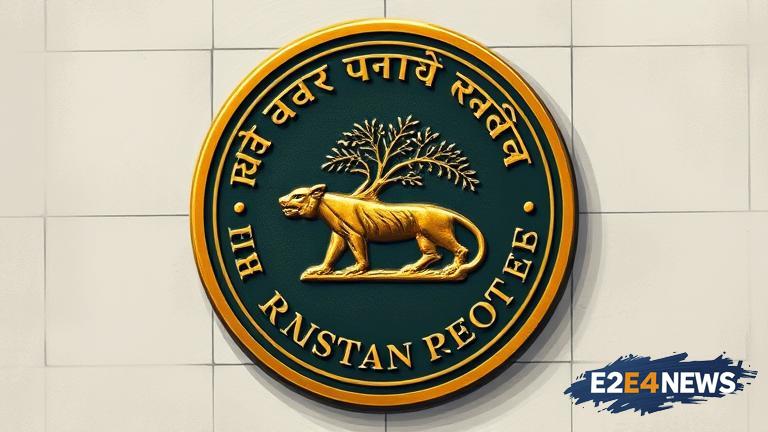The Reserve Bank of India (RBI) has taken a significant step to curb the flow of illicit funds into the country by asking lenders to increase scrutiny on transactions that may have indirect links to Pakistan. This move is aimed at preventing money laundering and terror financing, which have been persistent concerns for the Indian government. The RBI has directed banks to conduct enhanced due diligence on transactions that involve funds from countries that have a high risk of money laundering or terror financing, including Pakistan. The central bank has also asked lenders to monitor transactions that involve shell companies or other entities that may be used to route illicit funds. The RBI’s move is seen as a response to the growing concern over the use of the financial system for illicit activities, including terror financing. The Indian government has been working to strengthen its anti-money laundering and terror financing regulations, and the RBI’s latest directive is a part of this effort. The RBI has also asked banks to report any suspicious transactions to the Financial Intelligence Unit (FIU), which is responsible for monitoring and analyzing financial transactions to detect and prevent money laundering and terror financing. The FIU has been working closely with the RBI and other regulatory agencies to identify and disrupt illicit financial networks. The RBI’s directive is expected to have a significant impact on the banking sector, as lenders will need to enhance their due diligence processes to comply with the new regulations. The move is also expected to affect businesses that have trade relationships with Pakistan, as they may face increased scrutiny and regulatory hurdles. The Indian government has been seeking to strengthen its economic ties with other countries, but the RBI’s directive highlights the need for caution and vigilance in the face of illicit financial activities. The RBI has also been working to improve its regulatory framework to prevent money laundering and terror financing, and the latest directive is a part of this effort. The central bank has been engaging with international regulatory agencies, including the Financial Action Task Force (FATF), to strengthen its anti-money laundering and terror financing regulations. The FATF has been working to set global standards for anti-money laundering and terror financing regulations, and the RBI’s directive is seen as a response to the FATF’s recommendations. The RBI’s move is also seen as a response to the growing concern over the use of cryptocurrencies for illicit activities, including money laundering and terror financing. The Indian government has been seeking to regulate the use of cryptocurrencies, and the RBI’s directive highlights the need for caution and vigilance in this area. The RBI has also been working to improve its regulatory framework to prevent the use of shell companies and other entities for illicit activities, and the latest directive is a part of this effort. The central bank has been engaging with other regulatory agencies, including the Securities and Exchange Board of India (SEBI), to strengthen its regulatory framework. The RBI’s directive is expected to have a significant impact on the financial sector, as lenders and other financial institutions will need to enhance their due diligence processes to comply with the new regulations. The move is also expected to affect the overall economy, as it may lead to increased regulatory hurdles and compliance costs for businesses. However, the RBI’s directive is seen as a necessary step to prevent money laundering and terror financing, and to strengthen the integrity of the financial system. The Indian government has been working to strengthen its anti-money laundering and terror financing regulations, and the RBI’s latest directive is a part of this effort. The RBI’s move is also seen as a response to the growing concern over the use of the financial system for illicit activities, including terror financing. The RBI has also been working to improve its regulatory framework to prevent the use of the financial system for illicit activities, and the latest directive is a part of this effort.
